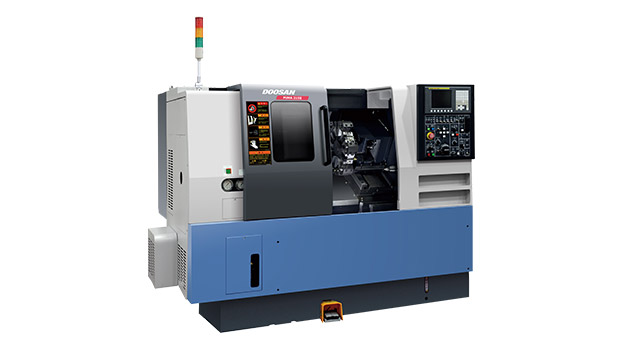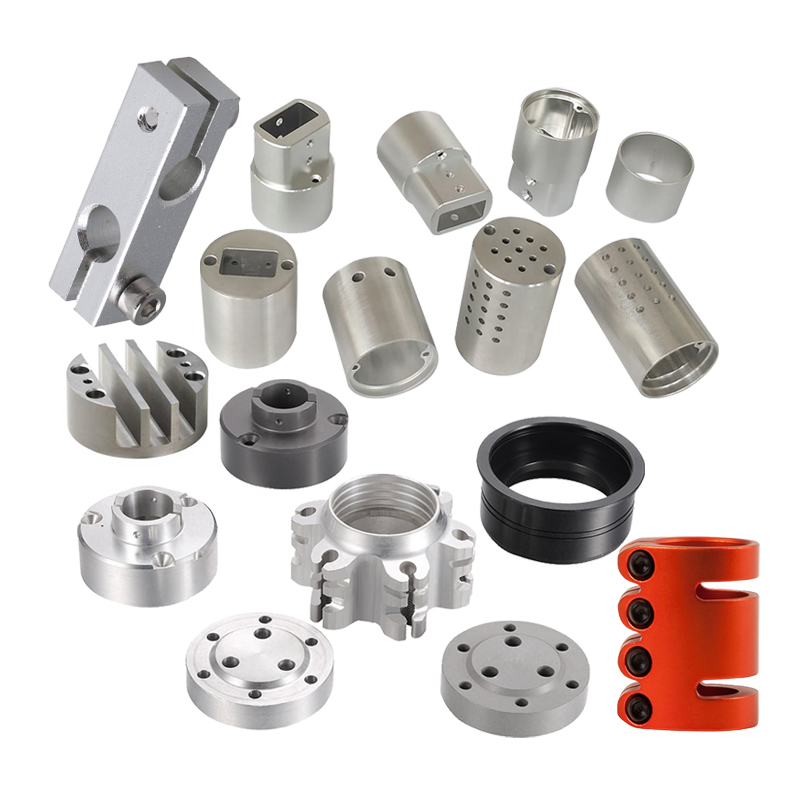What is Turning-Milling Compound Machining?
Turning-milling compound machining is a manufacturing process that combines the advantages of turning and milling operations. This process involves the use of a single machine that can perform both turning and milling operations on a single workpiece. This method of machining is widely used in the production of complex parts that require high precision, accuracy, and repeatability.
In turning-milling compound machining, the workpiece is held in place by a chuck or a fixture, while a cutting tool moves in two axes (X and Y) to remove material from the surface of the workpiece. The tool is rotated in a clockwise or counterclockwise direction, while the workpiece is rotated in the opposite direction.
The cutting tool can be either a milling cutter or a turning tool, depending on the requirements of the part. This process is suitable for the production of parts with complex geometries, such as gears, impellers, and turbine blades.
How Turning-Milling Compound Machining Parts Works
Turning-milling compound machining is a process that combines turning and milling operations to produce complex parts with high precision and accuracy. This process involves the use of a single machine that can perform both operations on a single workpiece.
In this process, the workpiece is held in place by a chuck or a fixture, while the cutting tool moves in two axes (X and Y) to remove material from the surface of the workpiece. The cutting tool can be either a milling cutter or a turning tool, depending on the requirements of the part.
The rotation of the cutting tool and the workpiece in opposite directions helps to ensure the accuracy and precision of the part. This process is suitable for the production of parts with complex geometries, high tolerances, and fine surface finishes.
The turning-milling compound machining process is widely used in the aerospace, automotive, medical, and electronics industries, among others. This process can produce parts that are difficult or impossible to manufacture using conventional machining methods.
We supply one-stop solution and services including galvanizing, welding, cutting to length, drilling, painting and plate profiling for our clients. We' d like to share it with our customers. Think of us as your one-stop shop for steel products, processing and propos-als.
What Kind of Parts Can Use Turning-Milling Compound Machining?
Turning-milling compound machining is a versatile process that can be used to produce a wide range of complex parts. This process is particularly suitable for parts that require high precision, accuracy, and repeatability, such as gears, impellers, turbine blades, and medical implants.
The turning-milling compound machining process can produce parts with complex geometries, fine surface finishes, and high tolerances. This process is suitable for the production of parts made of various materials, including metals, plastics, and composites.
The turning-milling compound machining process is widely used in the aerospace, automotive, medical, and electronics industries, among others. This process can produce parts that are difficult or impossible to manufacture using conventional machining methods.
Our Turning-Milling Compound Machining Capabilities
As CNC machining parts supplier in China, we have extensive experience in turning-milling compound machining. Our state-of-the-art machines and skilled technicians can produce complex parts with high precision and accuracy.
We specialize in the production of parts for the aerospace, automotive, medical, and electronics industries, among others. Our turning-milling compound machining capabilities enable us to produce parts with complex geometries, fine surface finishes, and high tolerances.
We use the latest CAD/CAM software to design and program our turning-milling compound machining processes, ensuring that our parts meet the highest standards of quality and accuracy. Our commitment to quality and customer satisfaction has earned us a reputation as a trusted supplier of high-quality CNC machined parts.

Available materials for Turning-Milling Compound machining
Here is a list of our standard CNC machining materials available in our machine shop.
CNC Metals
|
Aluminum |
Stainless steel |
Mild, Alloy & Tool steel |
Other metal |
| Aluminum 6061-T6 /3.3211 | SUS303 /1.4305 | Mild steel 1018 | Brass C360 |
| Aluminum 6082 /3.2315 | SUS304L /1.4306 | Copper C101 | |
| Aluminum 7075-T6 /3.4365 | 316L /1.4404 | Mild steel 1045 | Copper C110 |
| Aluminum 5083 /3.3547 | 2205 Duplex | Alloy steel 1215 | Titanium Grade 1 |
| Aluminum 5052 /3.3523 | Stainless Steel 17-4 | Mild steel A36 | Titanium Grade 2 |
| Aluminum 7050-T7451 | Stainless Steel 15-5 | Alloy steel 4130 | Invar |
| Aluminum 2014 | Stainless Steel 416 | Alloy steel 4140 /1.7225 | Inconel 718 |
| Aluminum 2017 | Stainless Steel 420 /1.4028 | Alloy steel 4340 | Magnesium AZ31B |
| Aluminum 2024-T3 | Stainless Steel 430 /1.4104 | Tool Steel A2 | Brass C260 |
| Aluminum 6063-T5 / | Stainless Steel 440C /1.4112 | Tool Steel A3 | |
| Aluminum A380 | Stainless Steel 301 | Tool Steel D2 /1.2379 | |
| Aluminum MIC 6 | Tool Steel S7 | ||
| Tool Steel H13 | |||
| Tool Steel O1 /1.251 |
CNC Plastics
| Plastics | Reinforced Plastic |
| ABS | Garolite G-10 |
| Polypropylene (PP) | Polypropylene (PP) 30%GF |
| Nylon 6 (PA6 /PA66) | Nylon 30%GF |
| Delrin (POM-H) | FR-4 |
| Acetal (POM-C) | PMMA (Acrylic) |
| PVC | PEEK |
| HDPE | |
| UHMW PE | |
| Polycarbonate (PC) | |
| PET | |
| PTFE (Teflon) |


